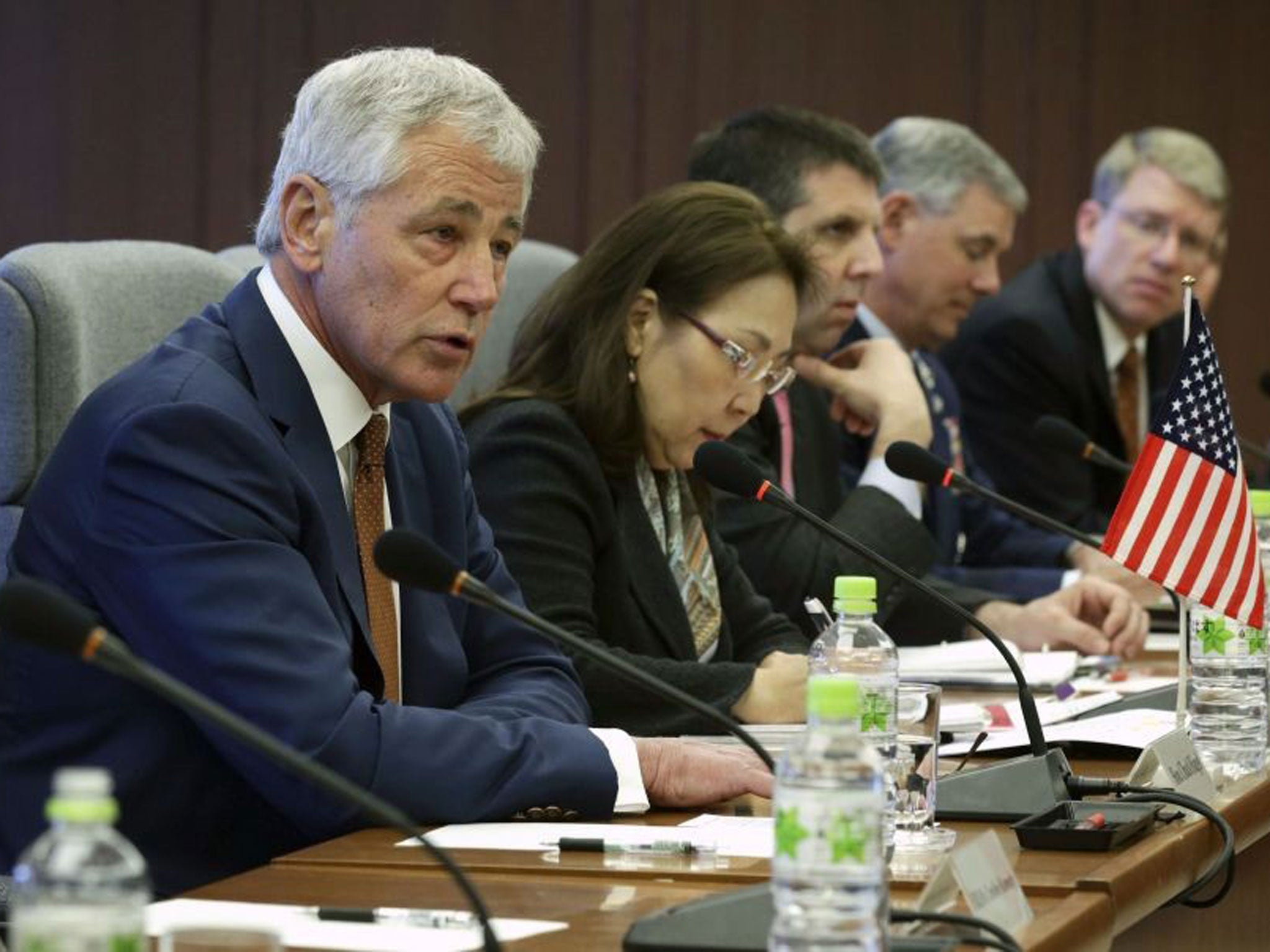US Defence Secretary Chuck Hagel calls on China not to abuse its 'great power' in territorial disputes with Tokyo
The United States pledged to defend Japan amid growing security concerns

Your support helps us to tell the story
From reproductive rights to climate change to Big Tech, The Independent is on the ground when the story is developing. Whether it's investigating the financials of Elon Musk's pro-Trump PAC or producing our latest documentary, 'The A Word', which shines a light on the American women fighting for reproductive rights, we know how important it is to parse out the facts from the messaging.
At such a critical moment in US history, we need reporters on the ground. Your donation allows us to keep sending journalists to speak to both sides of the story.
The Independent is trusted by Americans across the entire political spectrum. And unlike many other quality news outlets, we choose not to lock Americans out of our reporting and analysis with paywalls. We believe quality journalism should be available to everyone, paid for by those who can afford it.
Your support makes all the difference.US Defence Secretary Chuck Hagel has warned China against abusing its “great power” in a territorial dispute with Japan over East China Sea islands.
Tokyo has voiced growing anxiety over China’s military build-up and increasingly assertive behaviour regarding the contested islands, including last year's declaration of an air defence identification zone covering the Japanese-administered land masses.
China has also been ramping up military spending, building new submarines, surface ships and anti-ship ballistic missiles and testing emerging technology aimed at destroying missiles in mid-air - technologies the Pentagon says appear designed to counter US military capabilities.
Hagel, who leaves for Beijing on Monday, called China a “great power”, but used unusually strong language about how nations should wield such power, saying they must not resort to coercion or intimidation because it could trigger conflict.
“Great powers have great responsibilities. And China is a great power,” he said, adding he wanted to talk with China about its use of military power and encourage transparency.
In remarks almost certainly meant to reassure Japan, a treaty ally that the United States has pledged to defend, Hagel pointed to the example of Russia's annexation of Crimea as the kind of action that would not be tolerated.
“You cannot go around the world and redefine boundaries and violate territorial integrity and the sovereignty of nations by force, coercion or intimidation, whether it's in small islands in the Pacific, or in large nations in Europe,” he said.
Japan has drawn parallels between Russia's actions in Crimea and what it sees as China's challenge to the status quo in the East China Sea.
Hagel hosted talks last week with Southeast Asian defence ministers in Hawaii, where he also reassured Tokyo that the United States would send more missile defence ships to Japan.
The announcement came amid Japan’s alarm about a series of missile launches carried out by North Korea in recent weeks, including firing two medium-range missiles capable of hitting the US ally.
Amid the growing security concerns, Hagel said that two Navy destroyers equipped with missile defence systems would be deployed to Japan by 2017.
It was a response, he said, to provocations from the North, which has also threatened to carry out a “new form” of nuclear test.
The announcement followed other steps taken by the Pentagon to bolster its military posture in Japan, including an October decision to position second X-band missile defence radar there. That radar is expected to be operational this year.
“These steps will greatly enhance our ability to defend both Japan and the US homeland from North Korean ballistic missile threats,” Hagel told reporters at Japan's defence ministry.
Narushige Michishita, associate professor and security expert at the National Graduate Institute for Policy Studies, said the moves were “part of the US attempt to bolster reassurances vis-Ã -vis Japan.”
It also fits within the context of broader American efforts to bolster its military presence in the region, part of a strategic “rebalance” or “pivot” toward Asia that President Barack Obama will emphasize during his trip this month to Japan, South Korea, Malaysia and the Philippines.
Additional reporting by Reuters
Join our commenting forum
Join thought-provoking conversations, follow other Independent readers and see their replies
Comments